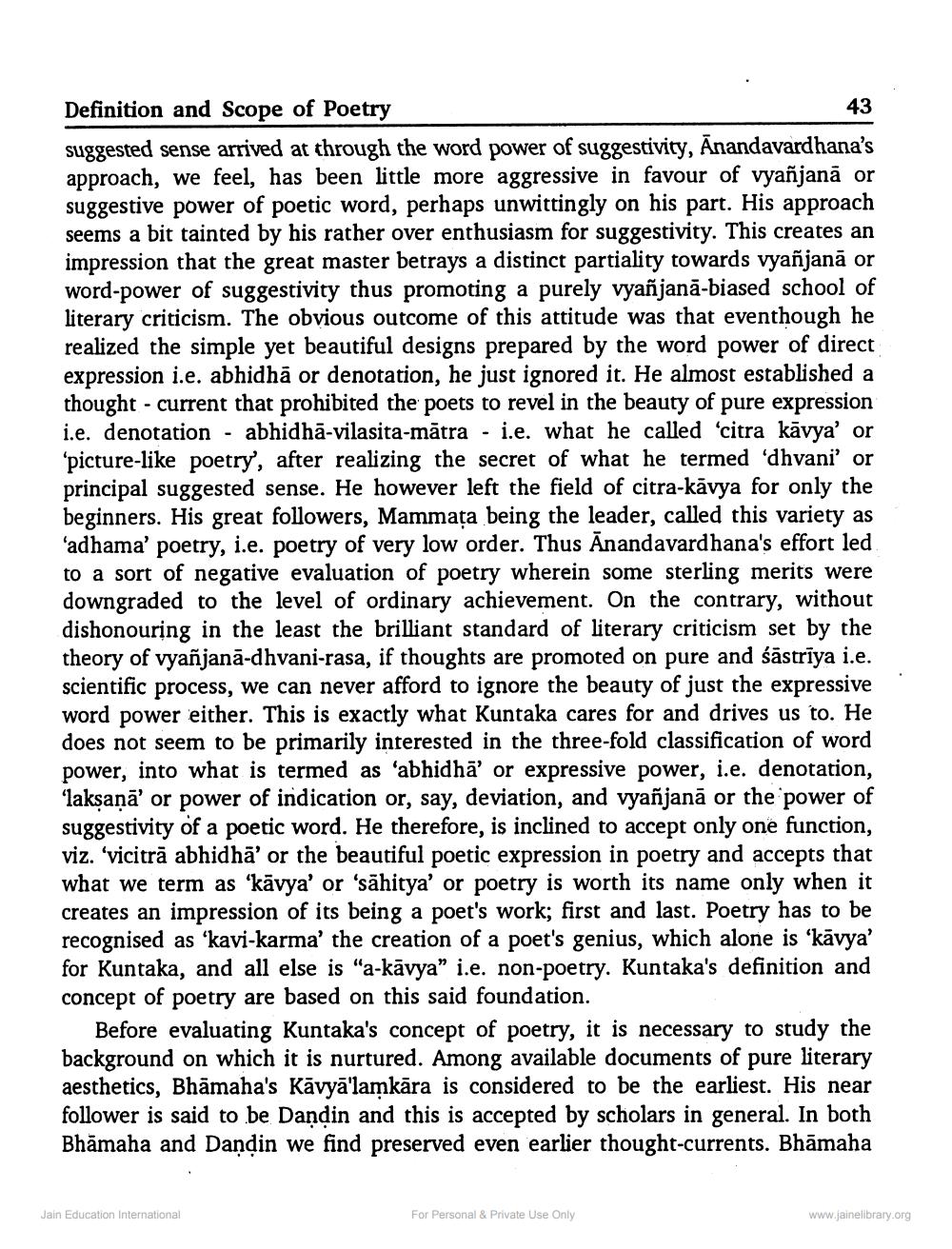________________
Definition and Scope of Poetry
suggested sense arrived at through the word power of suggestivity, Anandavardhana's approach, we feel, has been little more aggressive in favour of vyañjanā or suggestive power of poetic word, perhaps unwittingly on his part. His approach seems a bit tainted by his rather over enthusiasm for suggestivity. This creates an impression that the great master betrays a distinct partiality towards vyañjanā or word-power of suggestivity thus promoting a purely vyañjanā-biased school of literary criticism. The obvious outcome of this attitude was that eventhough he realized the simple yet beautiful designs prepared by the word power of direct expression i.e. abhidha or denotation, he just ignored it. He almost established a thought - current that prohibited the poets to revel in the beauty of pure expression i.e. denotation - abhidha-vilasita-mātra i.e. what he called 'citra kavya' or 'picture-like poetry', after realizing the secret of what he termed 'dhvani' or principal suggested sense. He however left the field of citra-kavya for only the beginners. His great followers, Mammata being the leader, called this variety as 'adhama' poetry, i.e. poetry of very low order. Thus Anandavardhana's effort led to a sort of negative evaluation of poetry wherein some sterling merits were downgraded to the level of ordinary achievement. On the contrary, without dishonouring in the least the brilliant standard of literary criticism set by the theory of vyañjana-dhvani-rasa, if thoughts are promoted on pure and śāstrīya i.e. scientific process, we can never afford to ignore the beauty of just the expressive word power either. This is exactly what Kuntaka cares for and drives us to. He does not seem to be primarily interested in the three-fold classification of word power, into what is termed as 'abhidha' or expressive power, i.e. denotation, 'lakṣaṇā' or power of indication or, say, deviation, and vyañjanā or the power of suggestivity of a poetic word. He therefore, is inclined to accept only one function, viz. 'vicitră abhidha' or the beautiful poetic expression in poetry and accepts that what we term as 'kāvya' or 'sahitya' or poetry is worth its name only when it creates an impression of its being a poet's work; first and last. Poetry has to be recognised as 'kavi-karma' the creation of a poet's genius, which alone is 'kāvya' for Kuntaka, and all else is "a-kavya" i.e. non-poetry. Kuntaka's definition and concept of poetry are based on this said foundation.
43
Before evaluating Kuntaka's concept of poetry, it is necessary to study the background on which it is nurtured. Among available documents of pure literary aesthetics, Bhāmaha's Kāvyā'lamkāra is considered to be the earliest. His near follower is said to be Dandin and this is accepted by scholars in general. In both Bhamaha and Dandin we find preserved even earlier thought-currents. Bhāmaha
Jain Education International
For Personal & Private Use Only
www.jainelibrary.org




